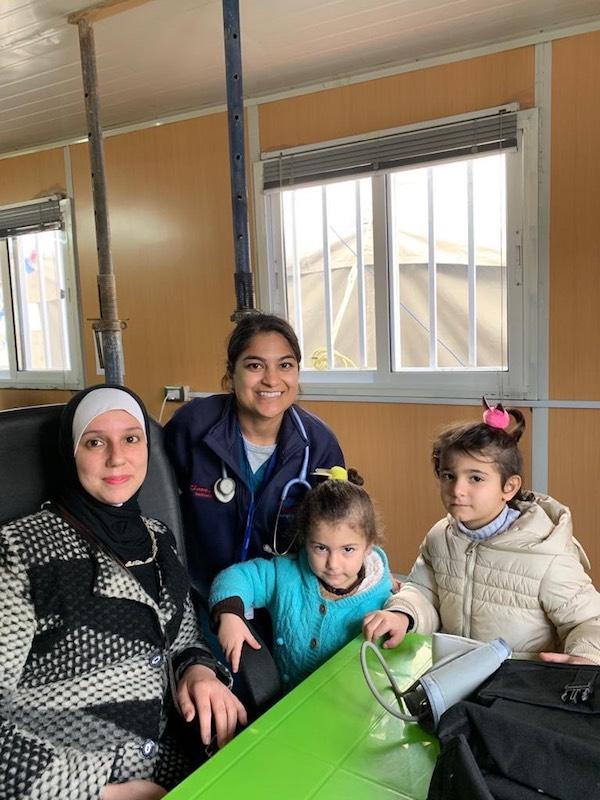SMU alumna, Aneesa Husain, witnessed first-hand the struggles of refugee families in the Middle East when she traveled to Amman, Jordan to work in a medical clinic.
Husain, who graduated in 2007 and works as a physician’s assistant for USMD in Arlington, decided to take a medical mission trip with the Islamic Medical Association of North America (IMANA) in February.
“I didn’t always want to do it,” she said. “I think I wanted to do it since I started working. I had always been looking for kind of service-based things.”
She and colleagues worked near the Syrian border, primarily with refugees from that area, in off-site clinics. They treated patients with various kind of illnesses, some physical and some caused by the emotional distress of life in a war zone. Husain got sick the first day of clinic with the same illness she was treating patients for. She recognized that, as bad as she felt, she didn’t have it as bad as they did.
“I think I caught it from them the first day,” Husain said. “But I get to go back to the hotel room with electricity and all the medications I need.”
She treated patients for flu-like symptoms, chronic pain, diabetes, hypertension, the injuries of those who had been hit by shrapnel or shot. She treated some children who had been physically abused.
Husain provided as much care as possible on the week-long trip, but she said that most of the surface-level problems indicated deeper issues that she couldn’t solve.
“In the beginning you feel like it’s a regular day,” she said. “Your patients come one by one, but you slowly realize the underlying trauma that they face. Then you go home and reflect, and that’s when it kind of hits you.”
“Your patients come one by one, but you slowly realize the underlying trauma that they face. Then you go home and reflect, and that’s when it kind of hits you.”
Husain said that some of the values of Islam motivated her desire to serve in the Middle East, specifically the religion’s call to show kindness and love to neighbors.
Dr. Imran Qureshi, IMANA’s Board President, said the organization began as a network for medical professionals, but the relief portion of their work grew organically over the last five years.
“There’s always a big part of trying to help other people and trying to give back to the local community and global community,” Qureshi said. “It grounds you and humbles you to what’s important.”
“It grounds you and humbles you to what’s important.”
The trip helped Husain see the contrast between the American patients she treats in Dallas and the refugees she encountered on the off-site clinics.
“Their problems stem from a lot of trauma,” Husain said. “A lot of pain from, you know, anxiety, stress. It’s an eye-opener. Even now you can get stuck easily in your routine of doing things and your comforts we have here.”















